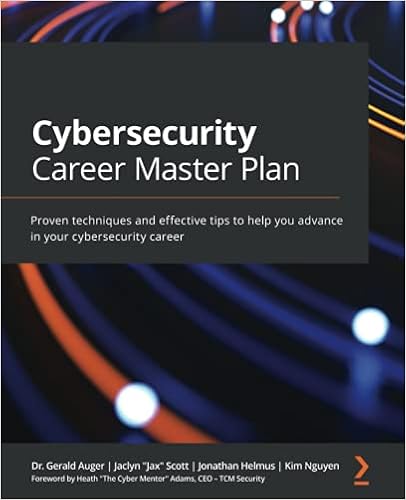The cybersecurity skills shortage continues to present multiple challenges and have repercussions for organizations. The skills gap can be addressed through training and certifications to increase employees’ education.
The talent shortage and a variety of specialized fields within cybersecurity have inspired many to reskill and join the industry. One way to get more knowledge is to take advantage of online learning opportunities. Below you can find a list of free online cybersecurity courses that can help further your career.

Cryptography I
Stanford University
Instructor: Dan Boneh, Professor
In this course you will learn the inner workings of cryptographic systems and how to correctly use them in real-world applications. The course begins with a detailed discussion of how two parties who have a shared secret key can communicate securely when a powerful adversary eavesdrops and tampers with traffic. You will examine many deployed protocols and analyze mistakes in existing systems. The second half of the course discusses public-key techniques that let two parties generate a shared secret key. Throughout the course participants will be exposed to many exciting open problems in the field and work on optional programming projects.

DDoS Attacks and Defenses
University of Colorado
Instructor: C. Edward Chow, Professor
In this course you will learn the history of DDoS attacks, analyze Mirai IoT malware, and perform source code analysis. You’ll learn about the intrusion tolerance paradigm with proxy-based multipath routing for DDoS defense. By developing and deploying such a new security mechanism, you can improve the performance and reliability of the system at the same time and it does not have to be just an overhead. By the end of this course, you should be able to analyze new DDoS malware, collect forensic evidence, deploy firewall features to reduce the impact of DDoS on your system, and develop strategies for dealing with future DDoS attacks.

Hardware Security
University of Maryland
Instructor: Gang Qu, Associate Professor
In this course, you will study security and trust from the hardware perspective. Upon completing the course, students will understand the vulnerabilities in current digital system design flow and the physical attacks on these systems. They will learn that security starts from hardware design and be familiar with the tools and skills to build secure and trusted hardware.

Software Security
University of Maryland
Instructor: Michael Hicks, Professor
This course explores the foundations of software security. You will learn about software vulnerabilities and attacks that exploit them, and consider defenses that prevent or mitigate these attacks, including advanced testing and program analysis techniques. Importantly, you’ll take a “build security in” mentality, considering techniques at each phase of the development cycle that can be used to strengthen the security of software systems. Successful learners in this course typically have completed sophomore/junior-level undergraduate work in a technical field, have some familiarity with programming, ideally in C/C++ and one other “managed” program language (like ML or Java), and have prior exposure to algorithms.

Web Security Fundamentals
KU Leuven University
Instructor: Philippe De Ryck, Founder, Pragmatic Web Security
This course provides an overview of the most common attacks, and illustrates fundamental countermeasures that every web application should implement. Throughout the course, you will gain insights into the threats that modern web applications face. You’ll build an understanding of common attacks and their countermeasures; not only in theory, but also in practice. You’ll be provided with an overview of current best practices to secure web applications. Although no previous security knowledge is necessary to join this course, it will help to be familiar with the basic concepts behind web applications, including HTTP, HTML, and JavaScript.

Security Governance & Compliance
University of California, Irvine
Instructor: Jacob Horne, Cybersecurity Consultant
In this course, students are introduced to the field of cyber security with a focus on the domain of security & risk management. Topics include the fundamental concepts and goals of cybersecurity (the CIA triad), security governance design, the NIST cybersecurity framework, relevant laws and regulations, and the roles of policies, strategies, and procedures in cybersecurity governance.

Windows Server Management and Security
University of Colorado
Instructor: Greg Williams, Director of Networks and Infrastructure
This course explores what it takes to design and build the server side of Windows in an enterprise environment. This course will explore everything from Windows Server installation to configuring users, to hardening the server operating system itself. The first week of this course provides an overview of how Windows operates in an enterprise environment and what it may look like in the real world. Week 2 will show you how Windows users interact with the system. Week 3 will explore authorization in a Windows environment. Week 4 explores built in security features of Windows and demonstrates how to use each technology effectively and in what circumstances you would use what technology for what purpose.
Programming, software development, ISO27k and AWS online courses








